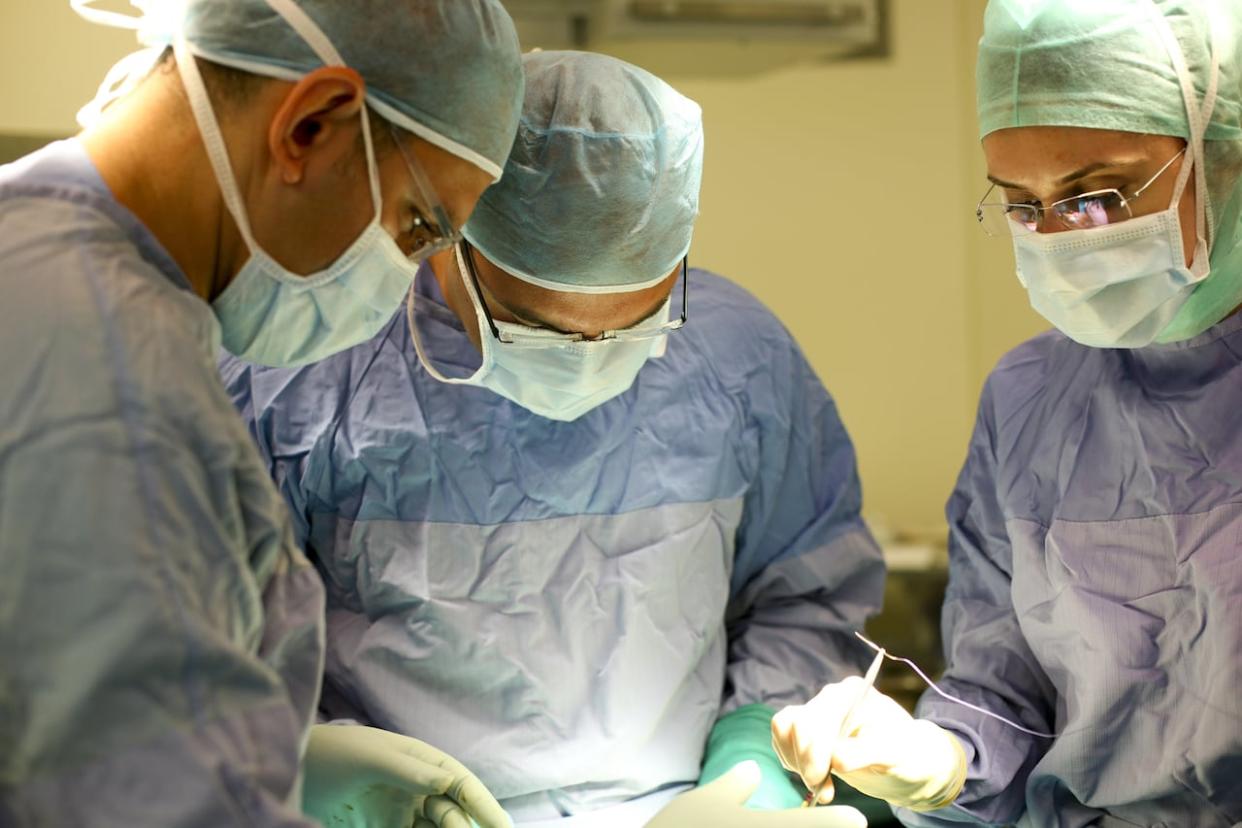Number of patients waiting for surgery in Quebec hits new record

The latest government figures show there are now more than 170,000 people waiting for surgery in Quebec — an even larger backlog than what the province saw during the worst of the pandemic.
The number of patients awaiting surgery jumped by nearly 7,000 last month to a record 170,829.
In comparison, 2020 saw a high of 138,000 people on the list. In 2022, that number was almost 164,000.
Patients waiting for orthopedic surgery remain the hardest hit, with almost 42,000 on the waiting list.
Aside from a brief dropoff last year, the list has been growing gradually throughout the pandemic. However, in December, Health Minister Christian Dubé said he was concerned about the impact the strikes among public sector workers in health care could have on surgical procedures.
"We're delaying about 500 surgeries a day," he had said. "We've lowered our list of [patients waiting for] more than a year, and I wouldn't want us to lose all that progress."
Still, by domino effect, around 700 patients were added to that list, bringing it to 14,180 patients. This is the first uptick of that list after more than a year of gradual decline.
The province launched a plan last May to help catch up after so many delays during the pandemic. The goal was to reduce the number of people waiting more than a year to 7,600 by March 2024, and to 2,500 by the end of the year.
Official Opposition health critic André Fortin, the Liberal MNA for Pontiac, said the current waiting list is the highest it's ever been in the province.
"Never before in Quebec's history have 170,000 Quebecers waited for surgery in the health-care network," he said.
He added if Dubé is blaming the labour dispute for the delays, "he has only himself to blame."
"He's had a year to negotiate with government workers, and it's still not settled right now."
Catch-up will be 'extremely long'
Dubé's office says that the recent figures include the impact of strike days — during which 4,000 procedures were postponed — the holiday season, a rise in viruses and overcrowding in emergency rooms.
"We are aware that we still have a lot of work to do, and we will spare no effort in the coming weeks to continue to reduce waiting lists while taking into account the evolution of the current situation," a statement from the office said.
Speaking to Radio-Canada in December, the president of the Association québécoise de chirurgie, Dr. Patrick Charlebois, said he believed the strike days would indeed have an impact on surgery waitlists.
"Reducing our activities by 30 per cent is easy, but catching up at 130 per cent is impossible," he said. "So we're going to try to work at 103 per cent, but the catch-up curve is going to be extremely long."
Québec Solidaire health critic Vincent Marissal acknowledges the strikes did affect wait times for surgeries, but he says there were major delays within the health-system to begin with.
"We were already in the hole before the strike," he said, adding he believes the key to help solve the problems remains staff recruitment.
Meanwhile, Quebec is preparing to appoint a CEO and other administrators of Santé Québec, the new agency that will oversee all activities related to the public health-care system, including providing services and facilitating access, beginning in 2024.


